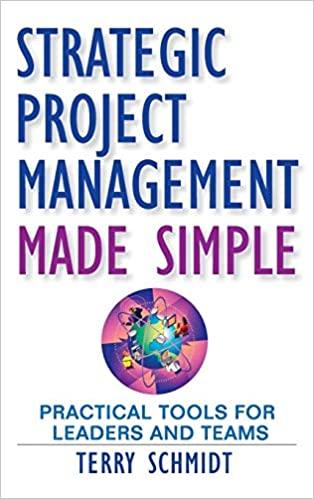1. Which of the following is NOT a core function of operations management? (a) Production planning and control (b) Quality management (c) Supply chain management
1. Which of the following is NOT a core function of operations management? (a) Production planning and control (b) Quality management (c) Supply chain management (d) Financial planning and analysis
2. Which of the following is a type of process layout? (a) Functional layout (b) Product layout (c) Cellular layout (d) Fixed-position layout
3. Which of the following is a method for forecasting demand? (a) Time series analysis (b) Regression analysis (c) Causal analysis (d) All of the above
4. Which of the following is a type of inventory control system? (a) Economic order quantity (EOQ) (b) Just-in-time (JIT) (c) Material resource planning (MRP) (d) All of the above
5. Which of the following is a type of quality control chart? (a) P chart (b) C chart (c) X-bar chart (d) All of the above
6. Which of the following is a technique for improving quality? (a) Total quality management (TQM) (b) Six Sigma (c) Lean manufacturing (d) All of the above
7. Which of the following is a method for selecting suppliers? (a) Request for quotation (RFQ) (b) Request for proposal (RFP) (c) Competitive bidding (d) Vendor scorecard
8. Which of the following is a type of supply chain integration? (a) Vertical integration (b) Horizontal integration (c) Strategic alliance (d) All of the above
9. Which of the following is a method for managing logistics? (a) Transportation management (b) Warehousing management (c) Distribution management (d) All of the above
10. Which of the following is a type of project management tool? (a) Gantt chart (b) Critical path method (CPM) (c) Program evaluation and review technique (PERT) (d) All of the above
11. Which of the following is a factor that affects capacity planning? (a) Product demand (b) Process technology (c) Resource availability (d) All of the above
12. Which of the following is a technique for scheduling production? (a) First-come, first-served (FCFS) (b) Critical ratio dispatching (c) Earliest due date (EDD) (d) All of the above
13. Which of the following is a method for measuring productivity? (a) Labor productivity (b) Material productivity (c) Capital productivity (d) All of the above
14. Which of the following is a type of operations strategy? (a) Cost leadership (b) Differentiation (c) Focus (d) All of the above
15. Which of the following is a method for measuring performance? (a) Key performance indicators (KPIs) (b) Balance scorecard (c) Six Sigma (d) All of the above
16. Which of the following is a type of operations research technique? (a) Linear programming (b) Simulation (c) Queuing theory (d) All of the above
17. Which of the following is a trend in operations management? (a) Globalization (b) Technology (c) Sustainability (d) All of the above
18. Which of the following is a challenge facing operations managers? (a) Increasing customer demand (b) Shortening product life cycles (c) Rising competition (d) All of the above
19. Which of the following is a role of operations managers? (a) Planning and coordinating operations (b) Ensuring product quality (c) Managing resources efficiently (d) All of the above
20. Which of the following is a goal of operations management? (a) To produce goods and services efficiently and effectively (b) To meet customer needs and expectations (c) To achieve competitive advantage (d) All of the above
Step by Step Solution
There are 3 Steps involved in it
Step: 1

See step-by-step solutions with expert insights and AI powered tools for academic success
Step: 2

Step: 3

Ace Your Homework with AI
Get the answers you need in no time with our AI-driven, step-by-step assistance
Get Started


